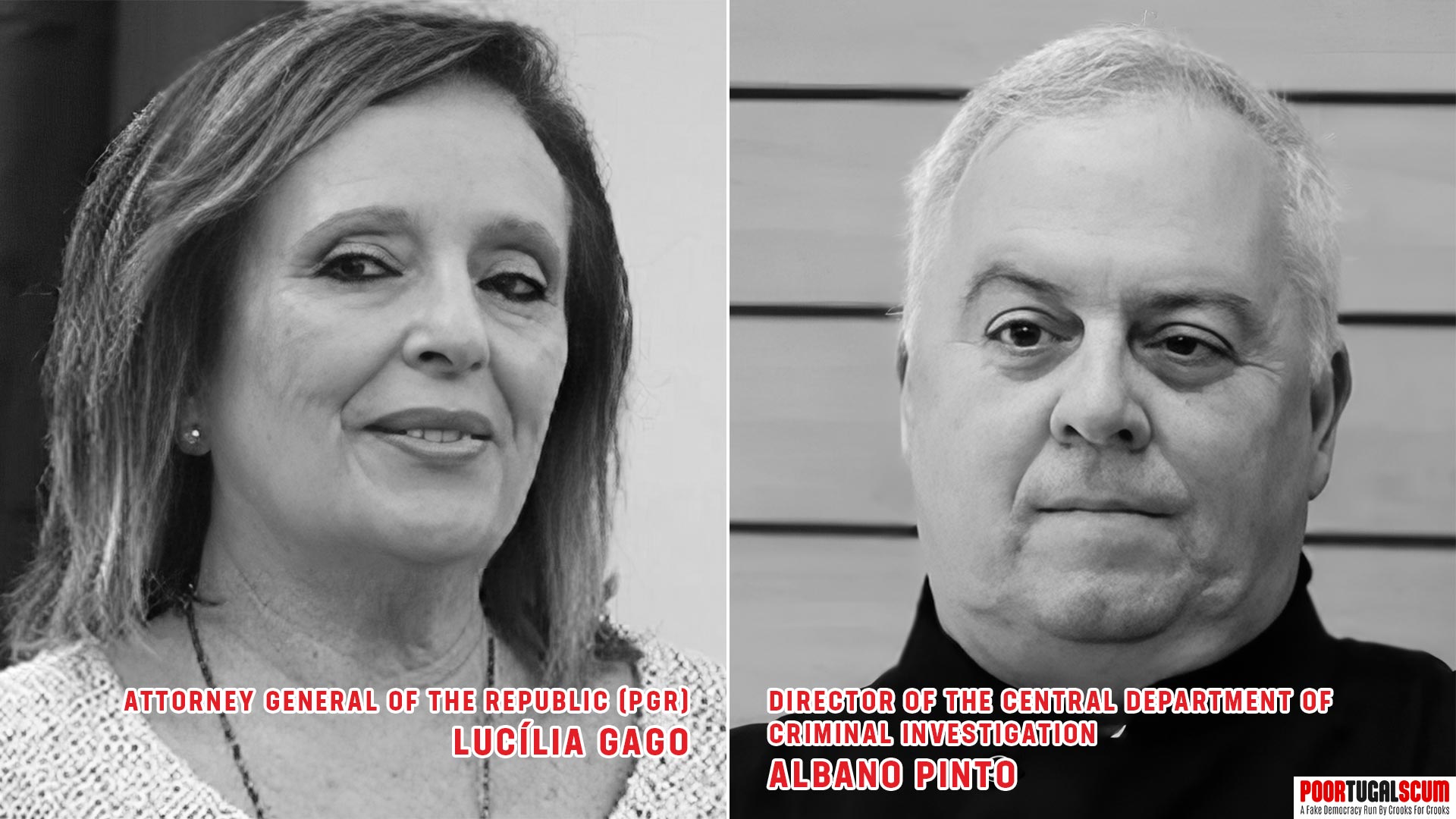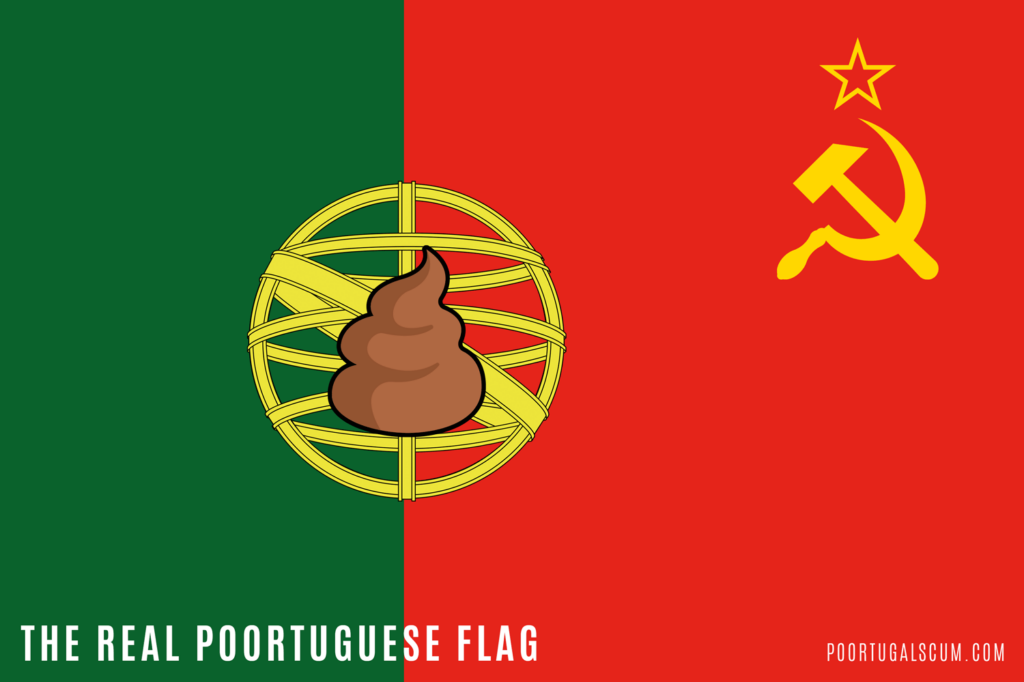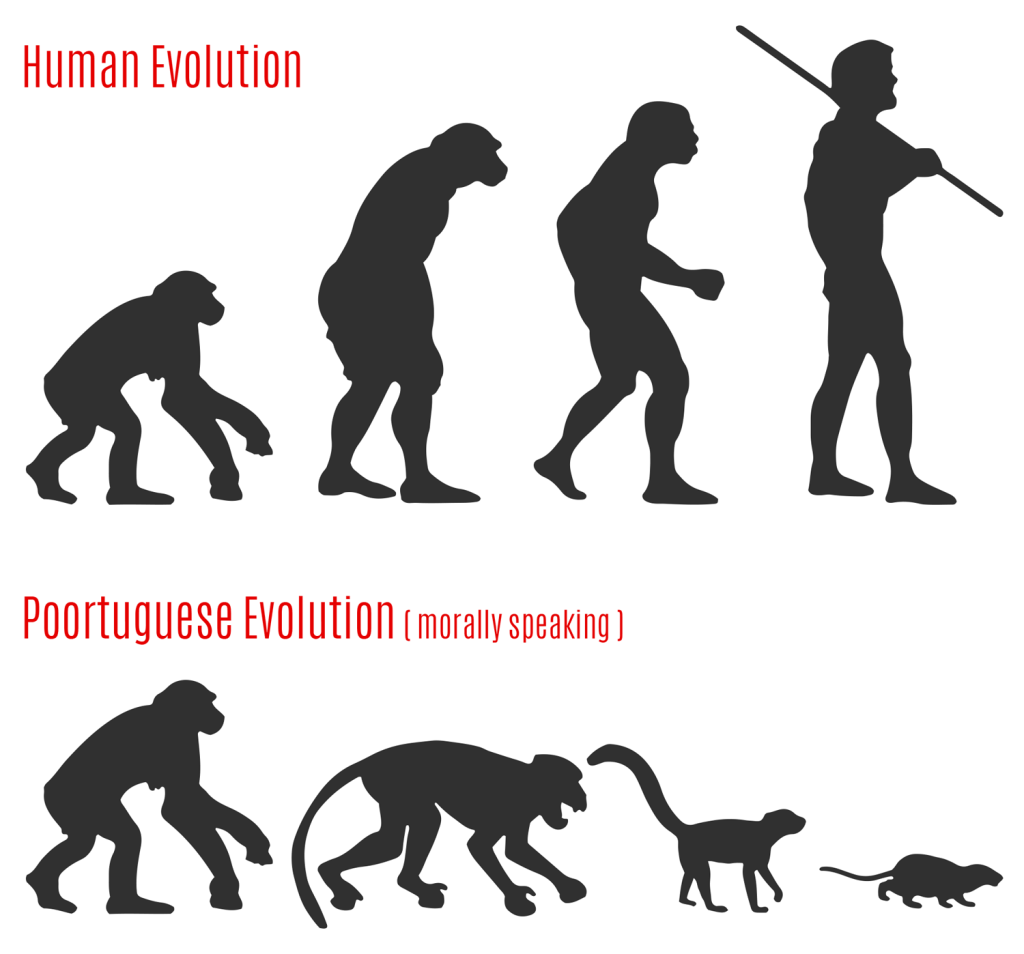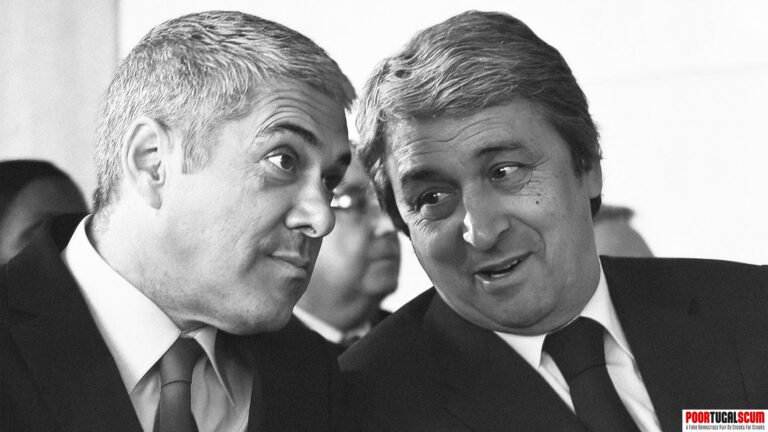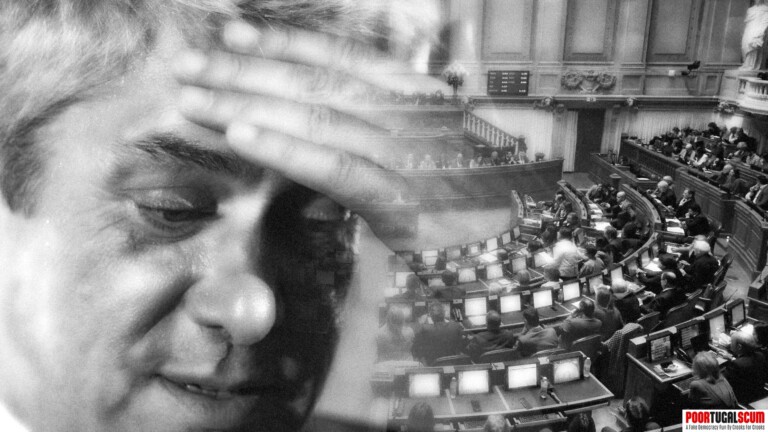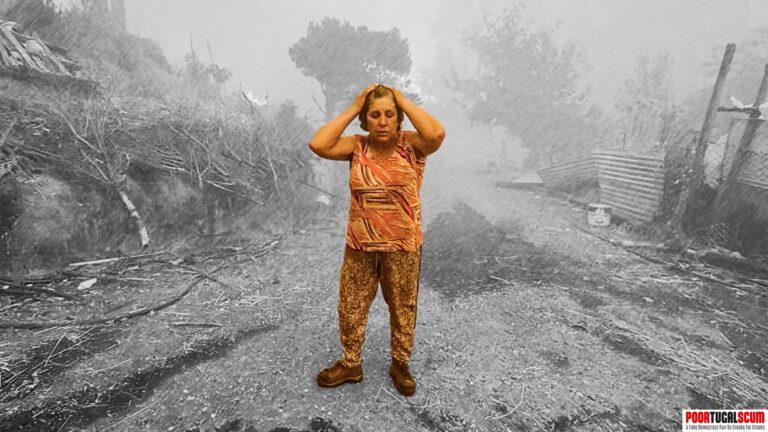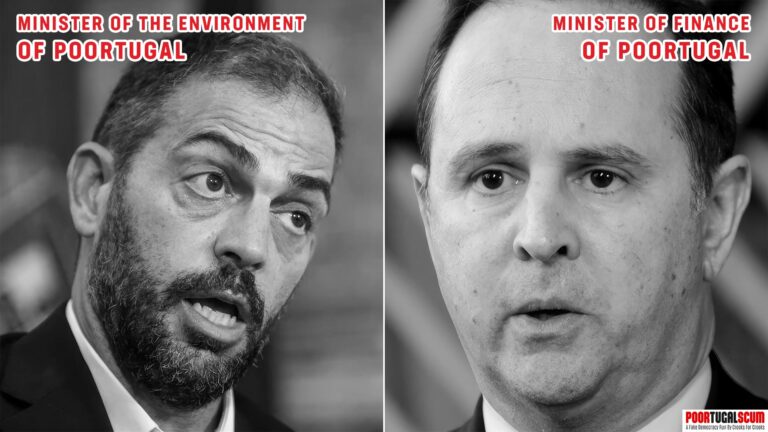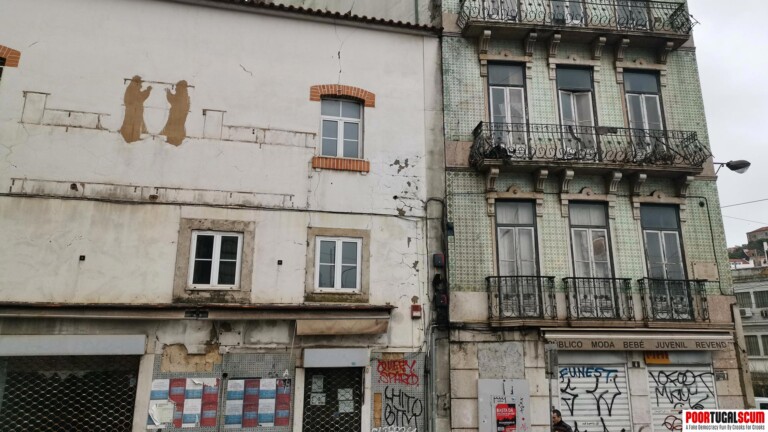“All the agents of the Public Ministry (who can no longer be called magistrates) are now only the long hand of the will of the Attorney General of the Republic. Appointed by the President of the Republic on the proposal of the Government, she will be directly responsible for everything that happens in the Public Ministry: for what she orders, for what she should have ordered, for what she allows, for what she does not prevent”.
With this decree, the Attorney General of the Republic claims the absolute power to intervene, to decide, to modify, to cancel and to destroy trials and investigations. This AGR (PGR), in turn, is directly appointed by the Government and the President of the Republic of Portugal. (!!!) How convenient, the politicians appoint who is supposed to watch over them!
This lady, Lucília Gago, also plays tricks when it comes to nominating names (of friends) for the position of Regional Prosecutor. She nominated three names, according to the rules, but with a small detail, she knew that two of the three names proposed could never be chosen because they had reached the age limit. Therefore, in the end, IT WAS SHE who chose and appointed the candidate for the new Regional Prosecutor of Porto, and not the competent body, as would be the case by law.
Does anyone still doubt that Portugal is a dictatorship (disguised as a democracy)? Very scary that this “country” is part of the EU!
The following article is a translation (mostly MT). You can find the link to the original website at the end of it.
After the opinion of the Consultative Council of the Attorney General’s Office (PGR) was released,
which maintains that hierarchical superiors can give orders to prosecutors, as happened in the case of Tancos, and that they should not even be in the respective processes,
Rui Cardoso, former president of the union, says that the MP “died as magistracy”.
This case was originated by prosecutors Vítor Magalhães and Cláudia Porto who wanted to hear the President of the Republic and the Prime Minister as witnesses in the case of the theft of weapons from the Tancos military base.
But the then director of the Central Department of Criminal Investigation Albano Pinto banned the hearings of Marcelo Rebelo de Sousa and António Costa, citing the “dignity and prestige of the position” of both to prevent the hearings.
The order, which was left out of the process but was published by “Sábado”, was opposed by the two magistrates in charge of the case and led the current Attorney General of the Republic, Lucília Gago, to ask the PGR Advisory Council for an opinion.
According to the opinion, published on the PGR website and which was agreed by Lucília Gago, the hierarchical subordination of prosecutors “presupposes, in addition to other powers, the recognition of the power of direction that integrates, in general, the content of the hierarchical relationship and which is embodied in the power to issue orders and instructions, general or concrete, by the hierarchical superior”, and to which magistrates are “exclusively subject”.
The opinion adds that «the hierarchical subordination of public prosecutors was enshrined in the Constitution of the Portuguese Republic as early as 1976» and «is manifested in the exclusive subjection of public prosecutors to the directives, orders and instructions provided for in their statute».
The former president of the Union of Public Prosecutors wrote on his Facebook page that February 4th (date of the opinion) represents “the darkest day in the democratic history of the Portuguese Public Ministry: it died as magistracy». «A true autocracy was born, with a level of hierarchy that doesn’t even exist in public administration”, he defended.
“All agents of the Public Ministry (who can no longer be called magistrates) are just a long hand of the will of the Attorney General of the Republic.
This person, appointed by the President of the Republic on a proposal from the Government, becomes directly responsible for everything that happens in the Public Prosecutor’s Office: for what it orders, for what it should have ordered, for what it allows, for what it does not prevent. The Attorney General of the Republic is the only relevant will”,
Cardoso added, noting that “a dark shadow has been installed” that “did not come from outside, it came from within”, referring to the CCPGR’s opinion.
Meanwhile, the current president of the MP union considered the opinion “very serious”. “This opinion revokes what was defined by the previous PGR, it is the end of the judiciary as we know it until now”, said António Ventinhas, to “Expresso”.
“In the future, it will not be known whether the person who signs the procedural documents is actually the author or if a hierarchical superior in the shadows giving orders in the process, without any knowledge of the judges or lawyers. It is very serious.”
Ventinhas also highlighted that the current opinion revokes a directive from the previous PGR Joana Marques Vidal, which had defined orders as instructions given in “service” matters and not “within the process”.
On “Sábado”, Miguel Matias, lawyer, considers that the MP has become a hostage of political power. This new orientation «transformed» the MP «into a long manus of the political class»,
because «as of today, investigations into politicians have ended and they, skillfully, will indicate to the PGR whoever will help, protect and prevent the MP from investigating», explains. Basically, all it takes is one order.
More related news
“I don’t change anything.” Lucília Gago does not back down in defense of the controversial directive
The Union of Public Prosecutors has already announced that it will challenge it in court, but the Attorney General of the Republic is not dissuaded from defending the document that establishes the relationship between the hierarchy and the prosecutors responsible for the investigations.
The Attorney General of the Republic (PGR), Lucília Gago, stated, this Friday, that the directive on the intervention of the hierarchy in judicial proceedings does not compromise the autonomy of the Public Prosecutor’s Office magistrates nor does it put the role of the Attorney General in crisis.
On the sidelines of a meeting with prosecutors from the district of Braga, Lucília Gago highlighted that “nothing has changed” with the directive from the Attorney General’s Office on the intervention of the hierarchy in legal proceedings.
“I want to make it clear that, in terms of hierarchical relationship, nothing has changed due to either the opinion of the Advisory Council or the directive I issued in connection with it. This hierarchical relationship remains as it has always been in the past, over decades, in fact,” she said.
An opinion from the Consultative Council of the Attorney General’s Office, whose doctrine Lucília Gago determined to be “followed and supported by the Public Ministry (MP)”, provides that the MP hierarchy can intervene in criminal proceedings, “MODIFYING OR REVOKING PREVIOUS DECISIONS”.
According to the opinion, in criminal proceedings, the intervention of the hierarchy and the exercise of the MP’s powers of direction are not limited to what is provided for in the Code of Criminal Procedure, “also comprising the power of direction through the issuance of directives, orders and instructions, general or concrete”.
For Lucília Gago, the directive does not compromise “anything”, namely the MP’s autonomy.
More related news
“Authoritarianism and abuse of power”. Magistrates criticize PGR for appointment in Porto
The rules provide for the Attorney General of the Republic to propose three names for the position of Regional Attorney.
However, according to the Union of Public Prosecutors, Lucília Gago was aware that two of these could not be chosen due to age limits.
The Union of Public Prosecutors (SMMP) accuses the Attorney General of the Republic (PGR), Lucília Gago, of authoritarianism and abuse of power.
At issue is the process of appointing Norberto Martins as Porto’s regional attorney general.
Under the terms of the Statutes of the Public Ministry, Lucília Gago proposes three names to the Superior Council of the Public Ministry, so that it can choose one of the proposed candidates.
However, according to the SMMP, the Attorney General of the Republic knew that two of the three names she proposed could never be chosen, as they had reached the age limit.
In other words, despite apparently respecting the rules, it ended up being Lucília Gago, and not the competent body, who chose the new Porto Regional Attorney General.
Norberto Martins is currently directing, on a service commission, the northern directorate of the Judiciary Police.

